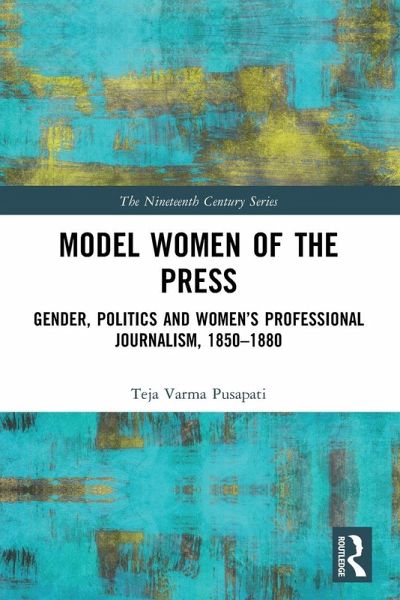This work makes an immense contribution to the growing body of sophisticated work on Victorian journalism. Focusing on the rise of the female journalist as a significant social and political commentator, Pusapati explores the various practices and strategies employed by women writers to facilitate this development. Backed by extensive archival research, the book offers fascinating case studies of various authors, from well-known figures such as Harriet Martineau and Frances Power Cobbe, to little-known writers such as Elizabeth Meteyard and Harriet Ward. Ranging across diverse periodical forms, from the explicitly feminist English Woman's Journal to the United Services Magazine where Harriet Ward filed her reports of
colonial warfare, the book brings a wonderfully fresh eye to bear on Victorian journalism more generally, and on the ways in which women carved out significant roles for themselves within this male-dominated world.
-Sally Shuttleworth, University of Oxford, UK
In this brilliant study, Pusapati draws upon extensive archival research to illuminate the history of women's social and political journalism from the 1850s to the 1880s. In the process, she sheds fresh light on the pioneering careers of familiar writers such as Harriet Martineau as well as lesser known authors such as Eliza Meteyard and Harriet Ward. Pusapati's study is also notable for its ground-breaking exploration of women's roles as feminist journalists, mainstream political journalists, and foreign correspondents. Her book is required reading for anyone interested in the history of authorship and Victorian women's writing.
-Alexis Easley, University of St.Thomas, USA
In this important book, Pusapati persuasively reorients understandings of nineteenth-century British political writings through her sustained attention to the work of largely understudied women political journalists, 'model presswomen' operating across a variety of press formats and press modes. Pusapati insists on reading this work as 'journalism', anonymous, pseudonymous, and signed, and deftly navigates these differently constructed writerly positions to show how women developed agency and cultural authority through the press. This is a significant scholarly study that situates serious-minded, politically motivated, professional women writers in longer histories of political journalism and the evolution of nineteenth-century authorship. It will be of particular interest to anybody working on social and media history, gender, and the nineteenth-century periodical and newspaper press.
-Fionnuala Dillane, University College Dublin, Ireland





